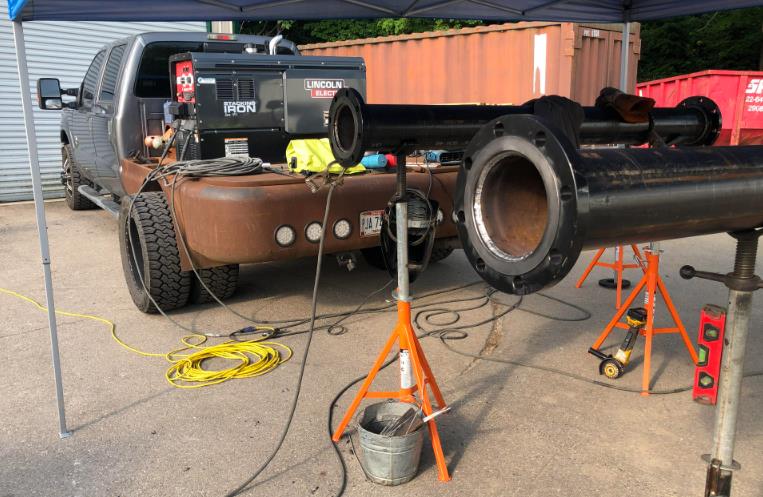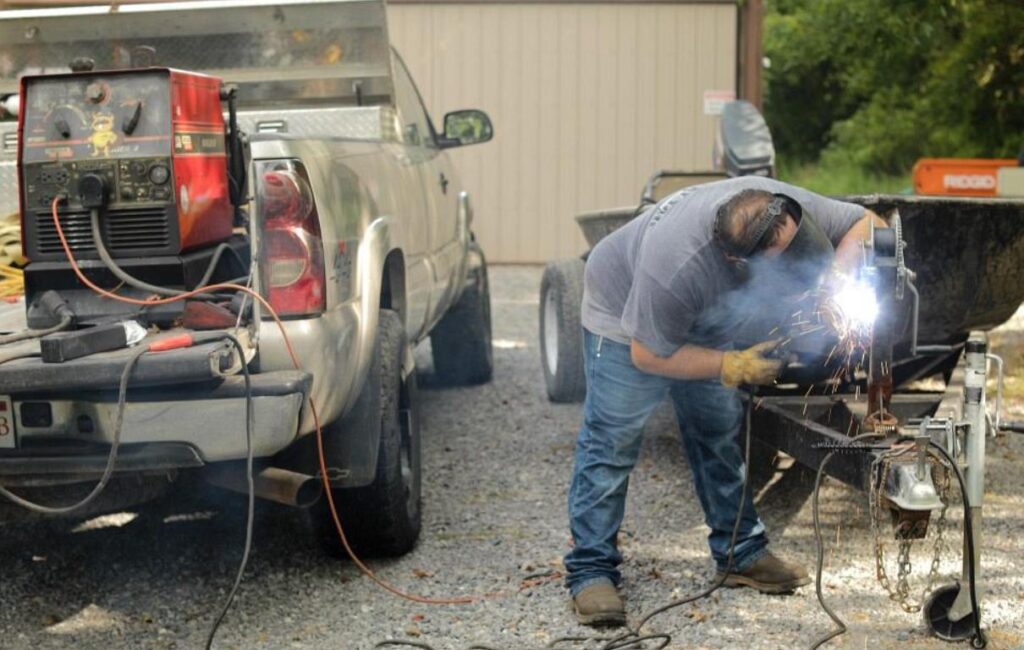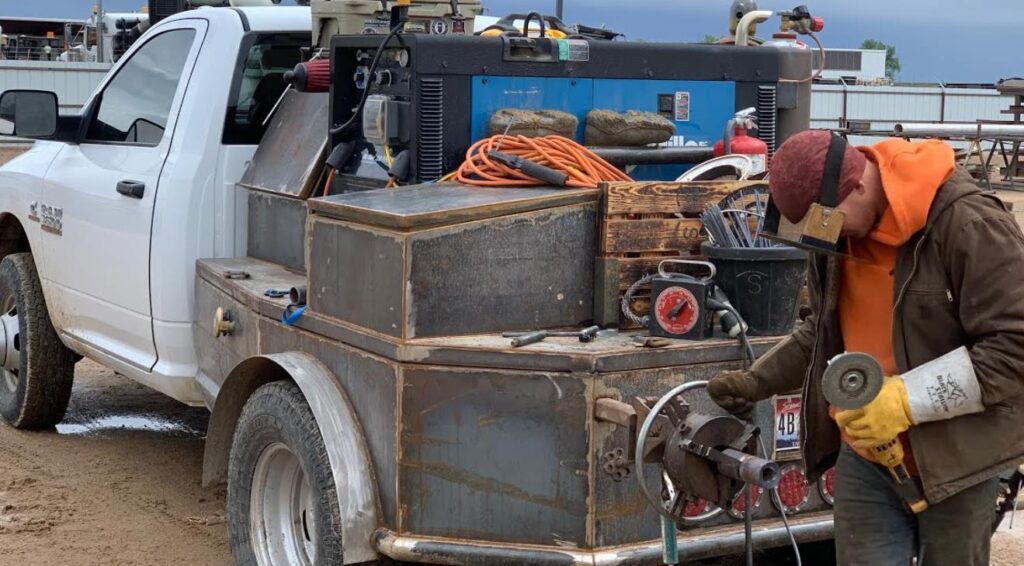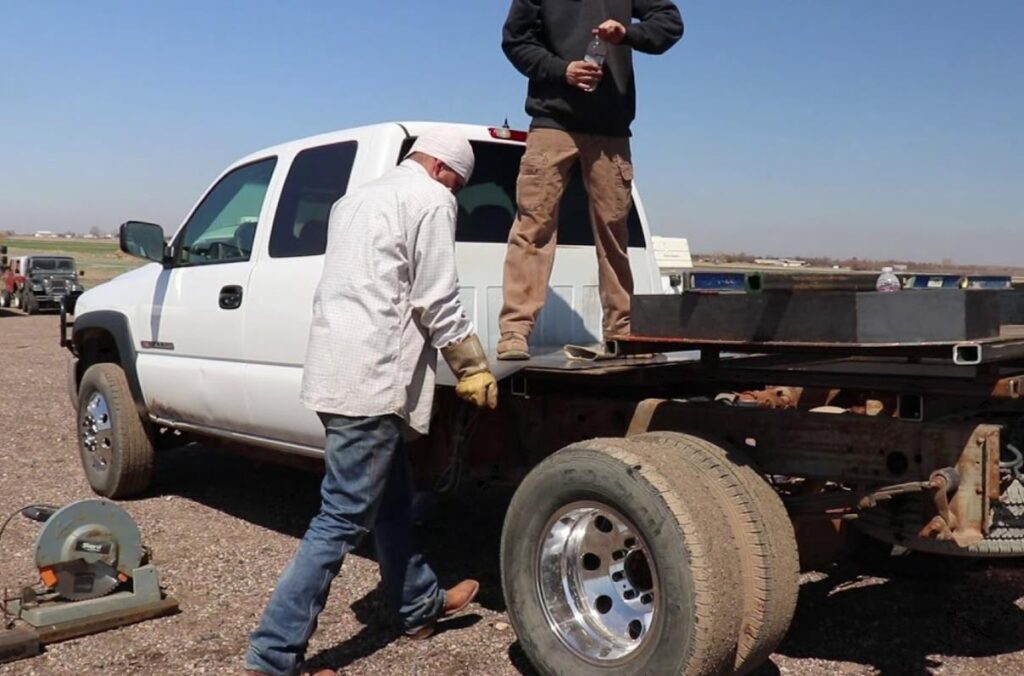How Much Does A Mobile Welder Charge Per Hour? Answered
If you’re in need of welding services, you’ve probably wondered, How Much Does A Mobile Welder Charge Per Hour? It’s a crucial question that can significantly impact your project’s budget. This article delves into the various factors that influence these rates, helping you make an informed decision.
Key Takeaways
- Mobile welders generally charge between $80 and $120 per hour.
- Rates can vary based on location, expertise, and type of job.
- Always verify certifications and insurance before hiring.
- Consider the value of quality work over just the hourly rate.
- Larger industrial companies may have different rate considerations.
How Much Does A Mobile Welder Charge Per Hour
The bulk of mobile welders in the GTA charge between $80 and $120 per hour. Rates can fluctuate based on various factors, including location, expertise, and the complexity of the job.

Factors Affecting the Hourly Rate
- Location: Rates can differ based on the cost of living in your area.
- Expertise: More experienced welders may charge higher rates.
- Type of Job: Complex jobs may attract higher charges.
Why do Rates Vary?
Rates can vary for several reasons. Welders with more training often charge higher rates but also tend to deliver quality work. Always verify the welder’s certifications and insurance before hiring.
Quality Over Price
Don’t just go for the cheapest option. Quality work can save you money in the long run by reducing the need for future repairs.
Special Considerations for Businesses
Larger industrial companies may not be as price-sensitive when hiring mobile welders. Their focus is often on meeting project demands rather than pinching pennies.
How to Find a Reliable Mobile Welder?
- Check Certifications: Always verify the welder’s qualifications.
- Ask for References: Past work can indicate the quality you can expect.
- Compare Rates: Get quotes from multiple welders for a comprehensive view.

Tips for Saving Money
- Bulk Hiring: Some welders offer discounts for long-term projects.
- Off-Peak Hours: Consider hiring during non-peak hours for lower rates.
Additional Costs to Consider
While the hourly rate is a significant factor, it’s not the only cost involved. Material costs can add up quickly. For instance, a welder will need flux, wire, grinding wheels, and UV-resistant paint. These materials contribute to the shop’s overhead and will be reflected in the price you pay.
Travel fees are another consideration. Mobile welders who bring equipment to your location often charge a travel fee to cover their time and transportation expenses. This fee varies but can significantly impact the total cost of your welding project.
Type of Metal Used
The type of metal used in the welding project also affects the final cost. Steel is generally the most affordable option, but aluminum and stainless steel can cost 1.5 to 2 times more.
Moreover, fluctuations in steel prices can lead to changes in welding costs. For example, during a recession, the cost of steel can skyrocket, affecting the overall project cost.
Type of Welding Project
The nature of your welding project can also influence the cost. For instance, pipe repairs cost an average of $120-$160 nationwide. On the other hand, more elaborate projects like constructing wine cellar gates can cost upwards of $2,800. It’s essential to get an upfront estimate based on your specific needs to avoid surprises later.
Tips for Hiring a Welder
When looking for a welder, ask for a free estimate. Provide as much detail as you can about your project to get an accurate quote.
Also, check the welder’s skills and experiences. Reviews from previous customers can give you an idea of their expertise and quality of work.

Check their certifications to ensure you’re hiring a qualified professional. A certified welder is more likely to deliver quality work, which can save you money in the long run by reducing the need for future repairs.
Types of Welding Methods
Different welding methods can also impact the cost. Stick welding is a common method that uses extreme heat to melt two separate metals together.
Metal Inert Gas (MIG) welding uses a wire over an electrical arc to melt wire onto a base metal. Tungsten Inert Gas (TIG) welding is similar to MIG but requires the welder to manually feed the stick.
Each method has its own set of requirements and costs. For example, TIG welding is generally more expensive due to the skill level required. Knowing the method that will be used can help you better understand the costs involved.
How Much Should A Mobile Welder Really Charge?
Determining the appropriate charge for a mobile welder involves multiple factors. On average, mobile welders charge between $75 and $150 per hour. This rate usually includes the welder’s time, travel expenses, and equipment used.

However, some welders may have additional charges for materials, specialized skills, or equipment rentals. It’s crucial to get multiple quotes to understand the market rate for your specific welding needs.
Some welders may be open to negotiation, especially for long-term projects. However, experienced welders often have set rates based on their expertise and demand.
Why Do Welders Charge So Much?
Welders often charge higher rates due to the complexity and risks involved in the job. Welding is a skilled trade that requires specialized training and certification. The cost of equipment, consumables like rods and gases, and ongoing maintenance also add to the overhead.

Moreover, mobile welders include travel time in their billing to compensate for the time and fuel spent traveling to and from the job site.
In some cases, the job may require working in challenging conditions like mud, snow, or rain, which can command higher rates. It’s also worth noting that welders need to have liability insurance, adding another layer to their operational costs.
How Do You Estimate Welding Costs?
Estimating welding costs is a multi-faceted task that involves various factors. Here’s a breakdown of the steps to give you a comprehensive understanding:

Direct Costs
- Labor Costs: Labor usually accounts for the majority of the costs, often around 80%. Calculate the hourly rate of the welder and multiply it by the estimated hours needed for the project.
- Material Costs: This includes filler metals, which generally make up about 10% of the costs. Calculate the volume of filler metal needed and multiply it by its cost per unit.
- Equipment Costs: Factor in the cost of using or renting welding machines, torches, and other equipment.
Indirect Costs
- Time for Adjustments: Time spent walking between the joint and power source to change parameters can add up. For example, four 15-minute trips a day can result in 250 hours a year, costing around $11,250 in lost productivity.
- Rework and Repairs: Mistakes in welding parameters can lead to defects that require rework, adding to both time and material costs.
- Part Fit-Up: Improper part fit-up can lead to over welding, increasing filler metal volume and costs.
Additional Expenses
- Travel Fees: Mobile welders often charge a travel fee, which can range from $100 to $200.
- Special Requirements: If the job requires specialized skills or certifications, this will also add to the cost.
Calculators and Tools
- ArcReach ROI Calculator: This tool helps estimate the return on investment for different welding processes.
- Filler Metal Selector and Calculator: Apps like these can help you calculate the amount of filler metal needed, thereby helping you estimate costs more accurately.
By considering all these factors, you can arrive at a more accurate estimate of your welding costs.
Conclusion
When it comes to understanding How Much A Mobile Welder Charges Per Hour, it’s essential to consider various factors like location, expertise, and the type of job. Always prioritize quality over price to ensure long-term savings and project success.
Frequently Asked Questions
How Do Mobile Welders Charge for Small Jobs?
For smaller jobs, some mobile welders opt for a different pricing strategy. They may charge per rod, with rates around $25 per rod, or per inch for specific types of welding like aluminum stick welding. These rates are in addition to a trip charge, which can vary depending on the distance traveled to the job site.
What Are the Typical Hourly Rates for Mobile Welding?
Hourly rates for mobile welding can vary widely depending on the location and the complexity of the job. Rates can range from $85 to $175 per hour, with some welders requiring a minimum number of hours. Some welders also offer emergency services at higher rates.
How Do Weather Conditions Affect Mobile Welding Rates?
Weather conditions can significantly impact the hourly rate for mobile welding. Jobs that require working in challenging conditions like mud, snow, or rain may command higher rates. Welders take into account the added difficulty and potential risks when quoting for such jobs.
Is There a Difference in Rates Between Shop Work and Field Work?
Yes, there is often a difference in rates between shop work and field work. Shop rates can be lower, ranging from $60 to $95 per hour, while field work generally commands higher rates. Some welders also charge differently based on the time of day, with higher rates for evening or overnight work.
How Do Mobile Welders Handle Payment Terms?
Payment terms can vary, but many mobile welders require upfront payment or a deposit, especially for larger projects. Some may offer flexible payment options for regular clients or those on fixed incomes. It’s essential to discuss payment terms in advance to avoid any misunderstandings.

Welcome to the exhilarating world of Matt Rex, a professional car racer turned renowned vehicle enthusiast. Immerse yourself in his captivating blog as he shares heart-pounding adventures, expert reviews, and valuable insights on cars, trucks, jets, and more. Fuel your passion for speed and discover the beauty of vehicles through Matt’s engaging stories and meticulous expertise. Join the ever-growing community of enthusiasts who find inspiration and expert advice in Matt Rex’s blog—a digital hub where the thrill of speed meets the pursuit of knowledge.


![Is The Mercruiser 3.0 A Good Engine? [Answered]](https://www.turbochaos.com/wp-content/uploads/2023/11/Is-The-Mercruiser-3.0-A-Good-Engine-768x519.jpg)




![Does Hyundai Digital Key Work With Iphone? [Explained]](https://www.turbochaos.com/wp-content/uploads/2023/12/Does-Hyundai-Digital-Key-Work-With-Iphone-768x483.jpg)